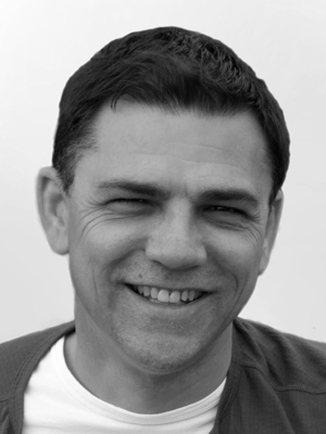|
I often get to talk about death. Its one of those life events that affects us all. Thinking about our own deaths as well as that of other people. And surprising as it may seem talking about death can be an uplifting experience.
It's one of the Four Givens in Existential therapy, and my own practice, Gestalt has an existential approach. The Four Givens
First suggested by Irvin Yalom[1], they are called 'givens' because they are inescapable. To be alive means having to resolve them in some way. And they are,
Although they may seem quite separate these 'givens' tie rather neatly into the first one, death. Freedom, contains a paradox around making choices. Before we make a choice, we have the freedom to choose from many different ones. And this freedom remains until we make that choice. At which point our freedom to choose is lost. Take getting married. Up until you get married, you in theory could marry a whole range of people, however once you get married your choice is narrowed to just one person. Thinking about choice in this way explains why many people get wedding jitters in the run up. Are you marrying the right person? This paradox of choice, then ties into meaninglessness. What makes our choices have any meaning is that we have to choose. If we could make all the choices possible to us, then it no longer matters what you choose, and your choice will have no meaning. What gives our choices meaning is not so much the one we make, rather it is the choice we have to forego. It's what we have to give up to make our choice. And what stops you from making all possible choices is death. Your life is limited, and so you must choose what meaning to make of your life. Looked at from this angle, death is what enables us to live a meaningful life. Without death, your life would have no meaning. Existential Grief
Most of the time, most of us do not think that much about death. Our society focuses very much on youth, staying young looking, and avoiding death. We are often very uncomfortable talking about it.
One of the times that death becomes a focus is when someone close to us dies. And yes there are the feelings of loss that come up. For many people, experiencing a death can also bring up the reality of their own death. We now know that we can die. And it's not something we often talk about. Often following a bereavement we are faced with the question of how are we going to live now that the person we love has died. What does knowing we can die mean for how we are going to live our own lives? It's the question most often faced by widows and widowers. It can be about learning new skills, such as how to deal with the finances, or running the partner's business, to new social outlets, or sometimes a change in direction, such as putting energy into charity work. Death and Meaning
There are three ways people typically cope with the existential given of death.
One way is to focus on the past. We spend much of our time in our memories of when we were younger. And our memories can provide us with joy and also meaning, helping us to make sense out of our lives. We gain a sense of our life being rooted in a past, which forms the foundation for how we live our lives. However we may also cling to old ways of living, becoming reluctant to let them go, and find it hard to adapt to new challenges. We may also refuse to accept the changes that aging can bring. Another way is to focus on the future. Here we are driven by a grand plan, which gives our lives a focus and a direction. We want to buy a house, get a promotion, have a child. Sometimes our grand plan is about trying to avoid death for as long as possible. For instance diabetes brings with it many changes in lifestyle, which help improve the condition. Also for many people the lifestyle changes can be seen as a way of living longer. While a grand plan can give us a very powerful sense of purpose, it can also bring crises of its own. What happens if we achieve our ultimate goal? What is our purpose then? As well as setting unachievable goals, many people adapt by continually shifting the goal posts, so they never reach their destination. Although this maintains our sense of purpose, it can also leave us continually unsatisfied with our lives. The third way is to live in the present. Or if I say this in a Gestalt way, "to be fully present in the moment." Here the focus is on living a richer and fuller life. And while it is something which I personally advocate for, it does also bring some downsides. Being more present in the moment, means feeling more, and there are a whole a range of feelings we can have. It also means experiencing more uncertainty, more not knowing. We have to completely trust ourselves to be fully present. And there is also a trap that I have been personally only too aware of. "Going with the flow" as I used to call it, really meant not being bothered about making choices. My constant refrain was "I don't mind," which was not only untrue, I wasn't being truly present when I said it. It also left me with a sense of of drifting and lacking in purpose. Each of these is a way of dealing with the crisis of death. Each has its merits and potential flaws. The question posed by death - How will you live knowing you are going to die? - has many possible answers. ReferencesAre you looking for help?
I am an experienced therapist in private practice in the Southampton area of England, UK. I see people from all walks of life, dealing with all sorts of problems.
3 Comments
Mark Redwood
2/4/2021 01:52:56 pm
gald you enjoyed the article
Reply
Julia
29/2/2024 03:48:06 pm
This was absolutely amazing, likewise so are your other articles! They are really helping me to understand my complex uni concepts! Thanks so much for making me a better counsellor in training :)
Reply
Leave a Reply. |
Categories
All
Archives
January 2021
|
BioI'm Mark, a Humanistic Counsellor. |
Home - Testimonials - Articles - Links - Contact - Book Appointment - Counselling Students - Privacy Policy - Terms
Mark Redwood, BA (Hons) Counselling, MBACP
© Mark Redwood 2015, 2016.2017 | Main portrait by Doug Freegard © 2015


 RSS Feed
RSS Feed